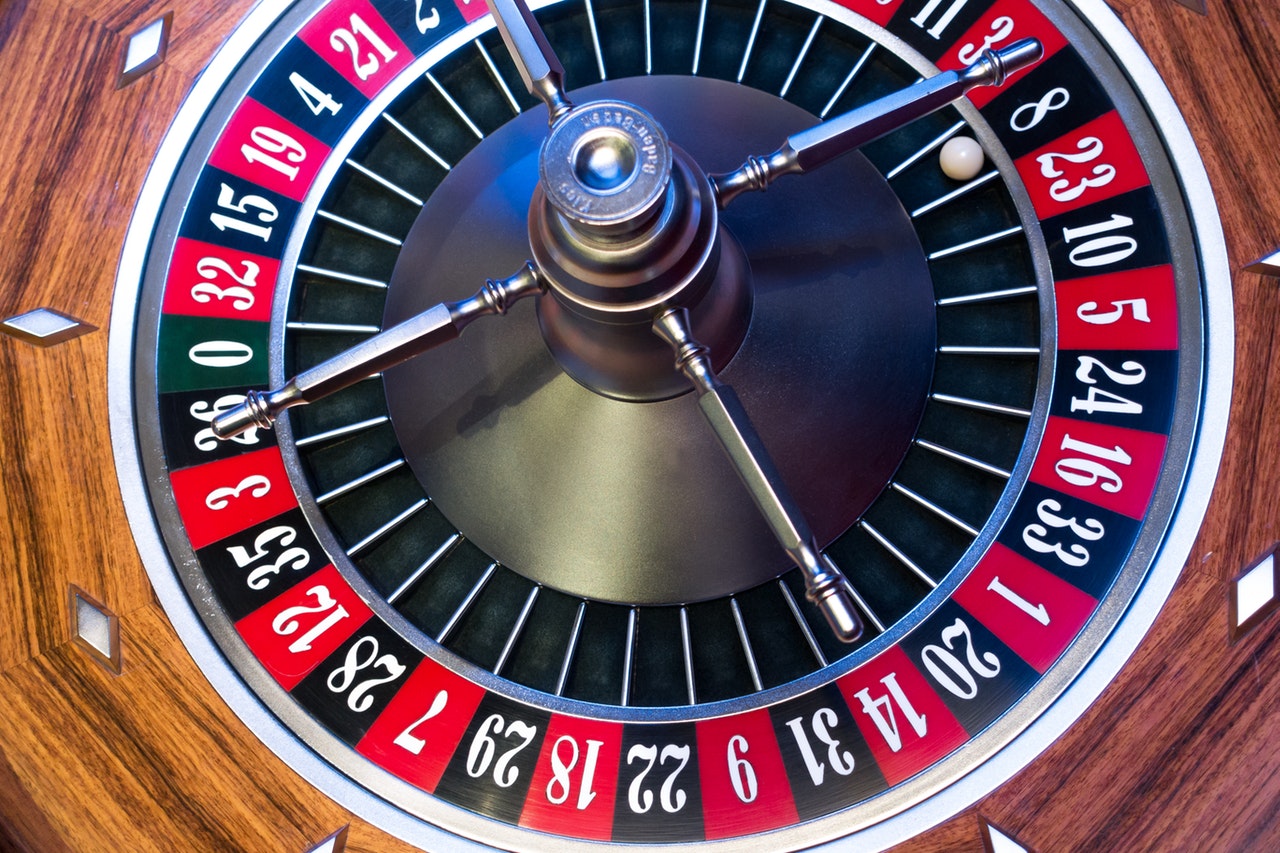World
Indiana’s Casinos start Sport betting, While Ohio is Considering to Legalize it

While the lawmakers in Ohia and Kentucky are still thinking about bringing the bills that legalize sports betting, a second Greater Cincinnati casino in Indiana has launched the sports betting services on November 11. Rising Sun Casino Resort is now offering sports betting options for gamblers. The casino will also allow betting on sports starting with an event featuring former Cincinnati Bengals Players.
Indiana has legalized sports betting on September 1 and now 10 casinos across the state are offering sports betting including Greater Cincinnati’s Hollywood Casino Lawrenceburg. All ten casinos took $35 million in sports betting in September and made an outcome of $8.6 million with $800,000 in taxes for the state.
That means sports betting has a good future in the state and a large number of casinos are including it in their business.
Indiana is the 13th state in the US that has legalized sports betting. In 2018 US Supreme Cout ruling allowed the states whether they want to run sports betting or not. Ohio lawmakers are brining two bills to make sports betting events legal in the casinos. The bills are facing resistance from the debate among lawmakers about who will regulate the sports betting industry and what kind of betting will be legal in the state.
The debate is including both the bills that are seeking the way to make sports betting legal in the state. House Bill 194 was introduced in April and it is co-sponsored by Cincinnati Democrat State Rep. Brigid Kelly and Westlake Republican State Rep will place control of sports betting under the Ohio Lottery Commission. They will also choose an investigation into the industry to the Ohio Casino Commission.
The second bill, Senate Bill 111 will give the casino commission full control to run the sports betting in the state. House Bill 194 will execute the return of a 10-percent tax on sports betting. The tax will be used for public education and the effort to fight gambling addiction.
The bills to make sports betting legal in the state are facing opponents that are telling the members of the Ohio House about gambling disadvantages. Supporters in favor of the legalization of sports betting are finding gambling already taking place in the state. And people are also visiting Kasinohai – löytää netticasino for casino gambling and betting.
In May 2018, the US Supreme Court gave a decision in the PASPA case in favor of New Jersey. The PASPA case was regarding the 1992 federal ban on sports betting in most states that violated their rights. After the Supreme Court ruling, most of the states including New Jersey and Rhode Island legalized sports betting.
In June 2018 Delaware implemented full-scale sports betting after Nevada. On June 11, 2018, New Jersey became the third US state to legalize sports betting after Nevada and Delaware. Further several other states legalized sports betting and now Indiana became the 13th US state which has legalized sports betting in Casinos and Ohio lawmakers are debating on the bills. Some states are still considering which department will regulate sportsbooks and are choosing between their respective gambling commissions and lottery boards.
World
Criminal probe focussed on Mehtas shipping business

From Monitoring Desk
DUBAI: An Asian family linked with the shipping business is facing criminal investigation in several jurisdictions including in Dubai and Far East where the family’s companies are under active investigation now, according to the authorities in three countries.
Sanjay and Gaurav Mehta, through their companies Best Oasis Ltd in Dubai and Priya Blue Industries in Gujarat, are facing investigations over money-laundering suspicions and suspected links to the Russian oil sector, sanctioned by the western countries, sources shared.
Sanjay and Gaurav Mehta, through their companies Best Oasis Ltd in Dubai and Priya Blue Industries in Gujarat have projected an image of environmental responsibility in ship recycling. They have tout certifications, attend global summits, and positioned themselves as ESG-compliant but their business practices have come under intense probe now. Their operations reportedly involve dismantling high-risk ships, using cash transactions, and leveraging political connections to avoid accountability, a source shared looking into the companies’ affairs. The investigation is being conducted in Dubai and the Far East.
The investigators are looking at the Mehtas operations dating back to 2006 when they came to attention of the law enforcement for the first time. Priya Blue dismantled the “Blue Lady” in 2006, a vessel containing over 1,200 tons of asbestos and radioactive waste, despite protests and objections from Greenpeace. Later, the “Exxon Valdez,” notorious for a major oil spill, was renamed “Oriental Nicety” and dismantled by the Mehtas in Gujarat, drawing international attention. In recent years, their transactions have become less conspicuous but reportedly more hazardous.
In 2025, Best Oasis allegedly acquired and dismantled at least four vessels linked to sanctioned entities, including Iranian and Houthi-controlled networks. These weren’t obscure ships; they were designated under U.S. terrorism sanctions for their involvement in oil smuggling and arms transport. According to investigators, here are the details of the sanctioned ships dismantled by Best Oasis in 2025: IMO: 9155808, Name: NOLAN (SOLAN), Sanction: SDN (SDGT), Beaching: 31 Jan 2025, Plot 16; IMO: 9221657, Name: BLUEFINS, Sanction: SDN (SDGT); Beaching: 26 Feb 2025, Plot 16; IMO: 9105085, Name: CONTRACT II, Sanction: SDN risk, Beaching: Arrived mid-2025, Plot 27; IMO: 9209300, Name: GAMA II, Sanction: SDN (SDGT); and Beaching: Pending/Planned, Plot 34
All four vessels were reportedly dismantled in Alang on plots leased by proxy firms connected to the Mehtas. These short-term leases, approved on a ship-by-ship basis by the Gujarat Maritime Board, reportedly make regulatory oversight nearly impossible. Once dismantling is complete, plot registrations often lapse, leaving no long-term record, according to documents shared by the investigators in Dubai.
Rahul Mistry, a shipping compliance researcher, noted this as a growing pattern: “This is a pattern we’ve seen more frequently in the last two years sanctioned hulls arriving under the radar, processed fast, with no digital trace.”
Payments for these vessels reportedly bypassed normal financial channels. According to sources familiar with the deals, transactions were settled in cash, either on-site or through offshore handlers. One source described entire ship values being paid in foreign currency bundles, avoiding Indian and Dubai banking disclosures, said one of the investigators familiar with the matter.
A retired port official Mr. Akin Yadav, familiar with Alang and Gujarat Maritime Board approvals stated that short-term leases are routinely used to avoid scrutiny, adding, “It was never meant to be a permanent workaround. But it’s become one.”
Political connections also reportedly play a role. Union Minister Mansukh Mandaviya and Gujarat State Minister Jitu Vaghani have been linked to approvals granted for Best Oasis and its proxies. While there’s no direct evidence of personal gain, sources allege that both men used their influence to expedite approvals, slow down inquiries, and shield the companies from enforcement.
Despite these activities in India, Best Oasis is expanding under new branding. A recent joint venture in Japan with Hiroshi Abe is being marketed as a clean, regionally responsible recycling partner for Japanese shipowners.
Mariko Fujita, a Tokyo-based maritime consultant, observed, “They’re presenting themselves as a new entity with no reference to past controversies. But none of the underlying ownership or structure has changed.”
In Alang, the situation reportedly remains much the same. Plot numbers are reassigned, cash continues to circulate and the same network of breakers and handlers is reportedly involved. Individuals like Jayant Vanani (also known as Budhabhai Patel) and Ramesh Mendapara are frequently named in connection with specific beachings, including “Contract II” and “GAMA II.” Both have been previously linked to other shadow transactions involving distressed or sanctioned tonnage.
Several yards allegedly connected to Best Oasis, including Shantamani Ship Breakers and Sai Baba Ship Breakers, reportedly operate with minimal inspection, despite numerous reports of irregularities in worker safety, hazardous waste disposal, and compliance with Indian scrapping codes.
This system, according to multiple sources, appears to be intentionally designed to operate in plain sight with just enough paperwork to pass basic scrutiny but not enough to trigger meaningful enforcement. There is no indication that regulatory bodies including customs, port health officers, or environmental oversight panels have conducted full inspections of any of the sanctioned vessels listed. Most were reportedly cleared and dismantled within days of arrival.
Rahul Mistry said: “This isn’t merely a loophole; it’s reportedly a business model. Best Oasis and Priya Blue are allegedly running a high-volume, low-visibility operation that filters sanctioned, end-of-life ships through legal instruments to appear legitimate on paper. This reportedly involves routing untaxed funds and shielded actors through a well-connected political and industrial network. As global scrutiny of ESG practices intensifies, many of these activities are allegedly being whitewashed through new partnerships and branding, but the underlying mechanisms reportedly remain unchanged.”
-

 Tech4 years ago
Tech4 years agoEffuel Reviews (2021) – Effuel ECO OBD2 Saves Fuel, and Reduce Gas Cost? Effuel Customer Reviews
-

 Tech6 years ago
Tech6 years agoBosch Power Tools India Launches ‘Cordless Matlab Bosch’ Campaign to Demonstrate the Power of Cordless
-

 Lifestyle6 years ago
Lifestyle6 years agoCatholic Cases App brings Church’s Moral Teachings to Androids and iPhones
-

 Lifestyle5 years ago
Lifestyle5 years agoEast Side Hype x Billionaire Boys Club. Hottest New Streetwear Releases in Utah.
-

 Tech7 years ago
Tech7 years agoCloud Buyers & Investors to Profit in the Future
-

 Lifestyle5 years ago
Lifestyle5 years agoThe Midas of Cosmetic Dermatology: Dr. Simon Ourian
-

 Health6 years ago
Health6 years agoCBDistillery Review: Is it a scam?
-

 Entertainment6 years ago
Entertainment6 years agoAvengers Endgame now Available on 123Movies for Download & Streaming for Free
